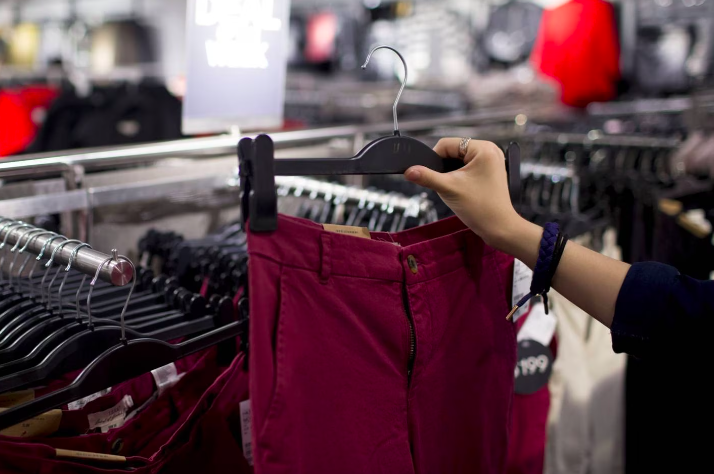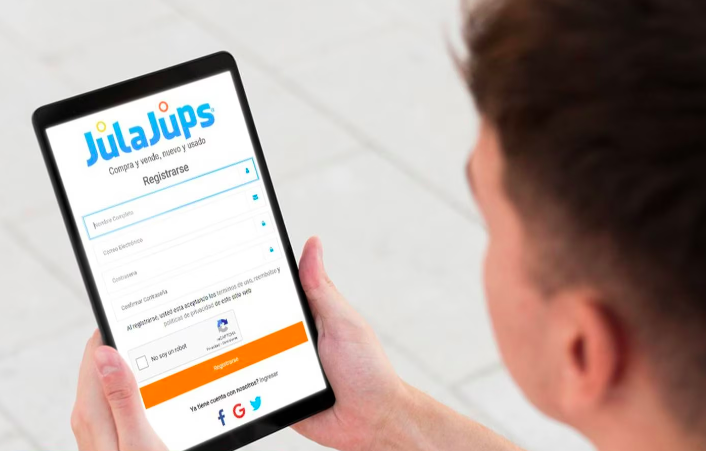In the wake of the 2008 economic crisis, the market for second-hand products went global, mainly because of its economic, environmental, and technological benefits.
In this market, sellers profit by selling products that still have a useful life, while buyers acquire goods and brands at a much lower price than they usually find for this type of product.
Since then, the sector has been growing.
 In 2021, the global apparel resale market reached US$35 billion, up from US$11 billion in 2012, according to a 2022 report from marketplace ThredUp.
In 2021, the global apparel resale market reached US$35 billion, up from US$11 billion in 2012, according to a 2022 report from marketplace ThredUp.
Different proposals and businesses have emerged in several Central American countries that are revolutionizing how the second-hand clothing and goods sales industry works.
In El Salvador, more than 1,000 product sellers and 30,000 active users interact in Vitrinnea, an e-commerce application for pre-owned or ‘pre-loved’ products that has its sights set on regional expansion, intending to reach the most important markets within three to four years.
The app was born in 2021 to boost a better recirculation experience.

In the short term, its developers foresee a new round of private financing with which they will seek to strengthen the product’s technology, improve personalization in the buying and selling experience, and other critical features in the user experience.
“Everything necessary to prepare Vitrinnea to regional scale,” said Vitrinnea’s co-founder and CEO, Julio Javier Pastore.
This application has the support of renowned entrepreneurs, among which the founders of Hugo, Alejandro Argumedo, and Ricardo Cuellar stand out.
It also has venture capital investment funds, including Centro Fund, focused on Central American startups led by John Truxillo.
CONNECTING SELLERS AND BUYERS
In Guatemala, the digital marketplace platform Julajups expanded offices and e-commerce operations in Honduras, El Salvador, Nicaragua, Costa Rica, Panama, and the Dominican Republic in 2020.
The portal launched in 2016 is dedicated to connecting sellers and buyers so they can publish, promote and sell their products directly.

This way, items in good condition and with months or years of useful life are recirculated.
Currently, the platform allows people to advertise and sell their products and services immediately, 24 hours a day, to thousands of potential buyers and consumers in various categories.
The tool seeks to save the planet’s raw materials by reusing goods in good condition and reducing the consumption of materials used to produce new ones.
THE LARGEST CLOTHING RECYCLER IN CENTRAL AMERICA
Also in Guatemala, the company Megapaca changed how second-hand clothing was sold.
In 2001, it started selling clothes on racks, when bales (bundles) were sold scattered on the floor, and people were used to searching through piles of clothes.
More than two decades later, the company remains a key player in used clothing marketing with 115 stores in Guatemala, El Salvador, and Honduras, markets in which it employs 6,000 direct employees.
Megapaca executives participated in the SMART 2023 Annual Convention in Dubai in February, a worldwide meeting promoting clothing recycling.
“At Megapaca, we seek to be the largest recycler in the region,” said Mario Peña, director of the company, adding that in 2022 alone, they imported £84 million in 2,650 containers of miscellaneous items, such as clothing, toys, and bicycles, in addition to 840,000 pairs of shoes on average per month.
The executive said that clothing not sold in stores is collected and processed at its sister company Novafiber, where 1,400 tonnes of textiles are recycled monthly, transforming them into raw material for mattresses and furniture stuffing.
“We not only buy and work with material that would be discarded in landfills, but we make it available in a dignified way to be reused and, what is not sold, we recycle,” Peña said.
With information from Bloomberg

